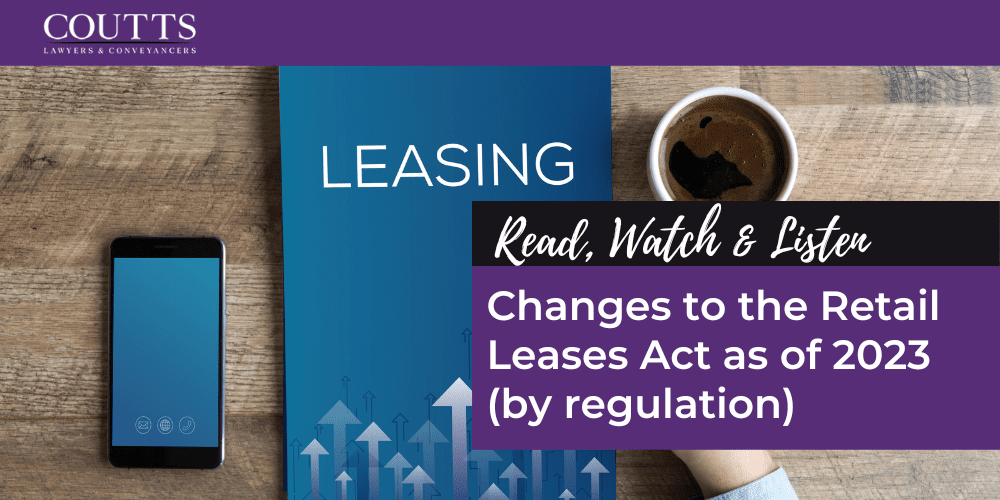KEY TAKE-OUTS:
- Changes commenced to the Retail Leases Act 1994 as of 1 January 2023.
- These changes, made by regulation, include an expansion of the type of businesses that are caught under the Act.
- Some of the businesses that have now been included are health and fitness establishments, small bars and other industries that were previously excluded.
The Retail Leases Act 1994 (NSW) is the legislation that covers the rights and obligations of lessors and lessees for retail shops. Changes were made effective of 1 January 2023 with a new regulation that clarifies and expands the status of what businesses are encompassed by the legislation.
Under the new regulation, the businesses that are covered now include gymnasiums and fitness centres. Fitness centres are clarified to be inclusive of yoga, barre, pilates and dance studios. The regulation also adds small bars with a maximum patron capacity of 120 people to be considered retail.
Previously, these businesses were only covered by the legislation if they formed part of a shopping centre or retail strip but were not included as a stand-alone premise. The regulation now clarifies the status of such small bars and fitness centres and they are encompassed regardless of where they are located.
Why is it important to know if your business is covered by the Legislation?
If your business is covered by the Act, it means that a Retail lease is applicable. As the lessee, the legislation provides further protections and coverage and is preferable as opposed to a commercial lease. The legislation protects tenants from certain conduct by the lessor such as unconscionable or deceptive conduct. It also allows for less negotiations, as a commercial lease generally has to be more in-depth and complex as there are no further legislative protections. The lease itself has to contain all of the required protections for the tenant as a result of this.
The legislation also prevents the lessor or landlord from charging the tenant the lease preparation costs and this is not needed to be negotiated. Further to this, a disclosure statement is required to be provided to the lessee which sets out more detailed information about the premises. The information contained includes such things as works, fit outs, refurbishment, a break down of outgoings and other applicable costs in great detail. The statement should also include information about any planned alterations or renovations to the building or shopping centre and demolition works.
If the shop is located within a shopping centre, the statement also contains further information relating to the centre which includes annual turnover, anchor tenants, the floor plan and the tenancy mix.
Commercial leases apply to any businesses that aren’t contained within the schedule of the Retail Leases Act. This includes warehouses, industrial premises and office spaces. It also includes any spaces that are over a lettable area of 1,000 square metres (even if they are considered retail otherwise). Shops operated within a cinema, bowling alley or skating rink by the same person who is operating the cinema or bowling alley is also commercial and does not fall under the Act.
Commercial leases require a lot more caution by the lessee as all rights needs to be negotiated and altered within he lease so that it is not unfair or onerous as there are no legislative protections (aside from the state specific property and Conveyancing Acts).
A commercial lessor or landlord is also able to charge the lessee for lease preparation and mortgagee consent fees. This is further to the additional costs that may be involved for the additional negotiations to the lease itself.
The expansion of the businesses that apply allow for further businesses to be protected by the legislation and affords those protections to more tenants within NSW.
For further information please don’t hesitate to contact Coutts Lawyers.
This blog is merely general and non-specific information on the subject matter and is not and should not be considered or relied on as legal advice. Coutts is not responsible for any cost, expense, loss or liability whatsoever to this blog, including all or any reliance on this blog or use or application of this blog by you.



